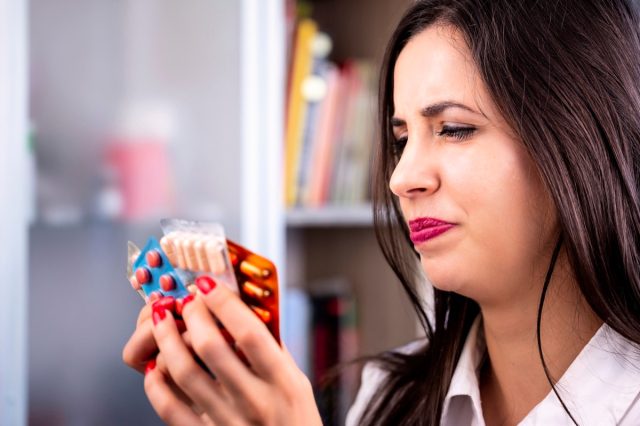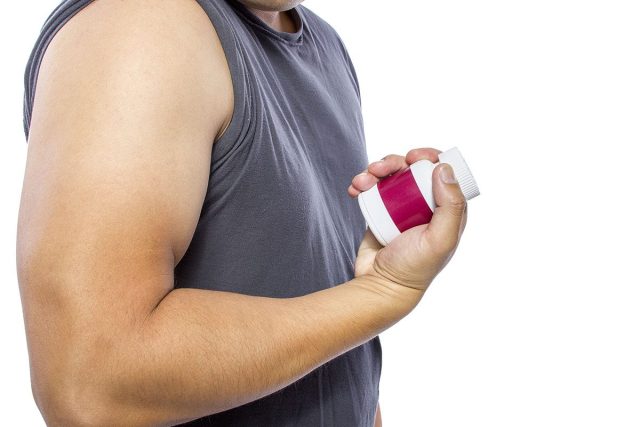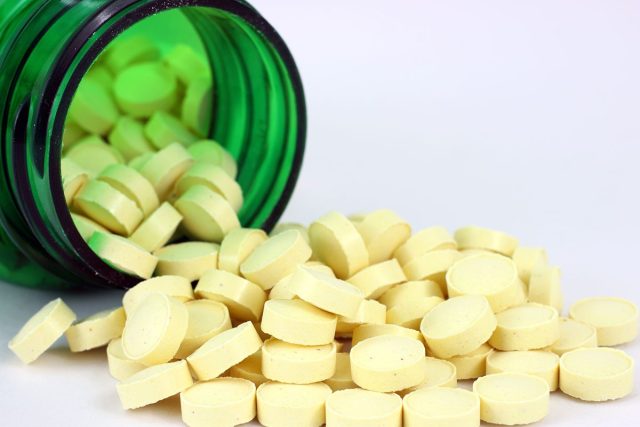It’s always a debate with health and medical experts whether vitamins are actually beneficial and who should be taking them. While that issue won’t likely be resolved anytime soon, there are things to take note of should you decide vitamins are right for you, including which ones to stay away from. Dr. Sean Ormond, a dual board-certified in Anesthesiology and Interventional Pain Management with Atlas Pain Specialists tells us, “There are trends going around in social media platforms advocating for various supplements with said benefits. Most of them are recommended by fitness or health influencers without the necessary research. These vitamins may be harmful and it is important to be knowledgeable.” Eat This, Not That! Health spoke with doctors who reveal why certain vitamins should be avoided. Read on—and to ensure your health and the health of others, don’t miss these Sure Signs You’ve Already Had COVID.
Dr. Kelly Johnson-Arbor, MD, medical toxicology physician and medical director at National Capital Poison Center shares, “Many people take dietary supplements for their reported health benefits, but it’s important to know that dietary supplements can be dangerous and cause unwanted adverse effects. To be safe, consider using dietary supplements that have a USP seal on the label. This seal indicates that the product contains the exact ingredients listed on the product label and is free of contaminants.”

Dr. Johnson-Arbor explains, “The FDA doesn’t regulate dietary supplements in the same way that it regulates prescription and over-the-counter medications. Unlike medications, the FDA does not regulate the safety or efficacy of dietary supplements. Because they are not highly regulated, dietary supplements may contain ingredients that are not listed on the product label, or that may have toxic side effects.”

Dr. Johnson-Arbor states, “Erectile dysfunction is a sensitive subject that many men prefer to keep private. Because of this, some men may choose to purchase dietary supplements to treat their condition. These supplements may be advertised on TV or in magazines as “natural” erectile dysfunction remedies, and can also be bought online. However, these products may contain contaminants and other drugs that are not listed on the product label. In one FDA evaluation, 80% of male enhancement drugs purchased from eBay or Walmart.com contained active pharmaceutical ingredients such as sildenafil (Viagra®), tadalafil (Cialis®), and fluoxetine (Prozac®). These prescription drugs can interact with other drugs or underlying medical conditions and cause serious adverse effects in some individuals, and should only be used with close medical monitoring.”

“Bodybuilding supplements, including pre-workout supplements, promise to enhance exercise performance, muscle mass, and strength,” says Dr. Johnson-Arbor. “Many of these products contain high doses of caffeine or caffeine-like ingredients. In some cases, products can be contaminated with other stimulant drugs or anabolic steroids. These ingredients can cause unwanted side effects that may be life-threatening, including nausea, tremors, heart problems, and even death.”

Dr. Johnson-Arbor shares, “Vitamin B17, or amygdalin, is marketed as a “natural” cure for cancer. After it is swallowed, vitamin B17 is converted in the intestines to poisonous hydrogen cyanide. There is extremely limited evidence suggesting that vitamin B17 is effective in treating cancer, and the toxic effects of cyanide, including death, are well known. Here is a case of severe toxicity after amygdalin ingestion.”

“Hangovers are unpleasant, and some companies market dietary supplements for the prevention or treatment of this condition,” Dr. Johnson-Arbor explains. “The actual cause of alcohol hangover is unknown, and because of this there is no known effective treatment for hangover. While some dietary supplements promise to cure or prevent hangovers, these products may contain dangerously high levels of vitamins or other ingredients that can cause harm. In 2020, the FDA issued warnings to several companies that were marketing dietary supplement products. Overall, the best way to prevent hangovers is to drink in moderation, not in excess. ”

Dr. Ormond says, “Higher vitamin E doses may cause fatigue and weakness. Blurred vision, headache and rash. It may also interact with anticoagulants and statins and niacin.”

According to Dr. Ormond, “Too much vitamin C can cause nausea, diarrhea, stomach cramps and fatigue among others. High-dose vitamin C pills can induce kidney stones in certain persons. Long-term use of vitamin C supplements over 2,000 mg/day increases adverse effects. Note: It may also interact with aluminum, oral contraceptives and antiviral drugs.”

Dr. Ormond explains, “Folic acid is a synthetic version of vitamin B9 found in supplements and fortified meals. Your body absorbs fortified folic acid and supplements better than naturally occurring folate. Unmetabolized folic acid (UMFA) can build up in the body from too much folic acid.”
Heather Newgen